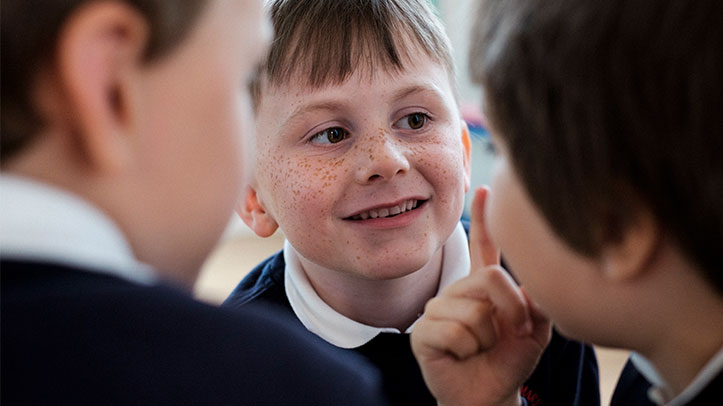
As we approach the start of term, with teachers preparing their classrooms with new social distancing guidelines and families sorting out new shoes and uniforms, many children with special educational needs will be excited to be joining their friends back in the classroom. I visited a school this week that had really carefully thought about what extra support they would need to have in place for children who need extra help in lessons and were ready and waiting to welcome all their children back. The entitlements for children who have an Education, Health and Care Plan (EHCP) have also been restored, although the regulations on assessments will not lapse until later this month.
However lockdown has thrown up major challenges for many children with special educational needs over the last six months and they remain unresolved.
Although school places were kept open for some children with SEND, just 18,000 were attending at the end of April. This was often because schools had to conduct ‘risk assessments’ before children could go in and many of these either did not happen or stated that the child would be safer at home. Some families also found that their usual access to special educational support and health services set out in their EHCP disappeared as the coronavirus Act reduced this to a requirement on local agencies to make “reasonable endeavours” to deliver these services. worryingly, children with SEND who did not have an EHCP were not guaranteed a school place in the first place.
Many families tell us they feel forgotten about as their children have not been able to remain at school and they have often lost out on extra support they would usually receive at home. One teenage boy told us “I have ADHD and dyspraxia and have felt a lot more stressed and upset feeling isolated”. According to the Disabled Children’s Partnership, half of children who were previously receiving help like physiotherapy, saw it stop in the pandemic. 76% of families who had previously been receiving support from social services before lockdown (such as respite care and summer play schemes) saw it stop during the crisis and nearly half of parents (45%) said their child’s physical health had declined.
There has also been a negative impact on some children’s education. In the Disabled Children’s Partnership’s May survey of parents, a third (32%) said their school had offered no specific home learning support in relation to their child’s SEN needs. Many parents have struggled to teach their children at home, but for parents of children with SEND many have found it a particular challenge meaning that progress previously made was lost, increasing the disadvantage gap for SEND children, and causing burnout for parents. 79% of parents say their own mental health has declined during the lockdown.
It is not only parents of disabled children who have been affected. 50% of siblings of disabled children have been providing more care in lockdown and 75% of parents have said that they feel their non-disabled child’s mental health has worsened. We have of course had many positive stories of families working together to try and overcome the problems lockdown threw at them but it’s also true one 11 year old boy spoke to us about the stress of “having to deal with my autistic brother constantly being around me”. Where children have been supported to continue living in specialist provision away from home, some families have had much reduced contact with their children, some of whom we have supported through our Help at Hand advice line, including a teenage boy who wasn’t able to see his family for over 3 months.
The start of term will be a big transition for all children. and for some children with SEND, who may have been already struggling in school before lockdown, going back could be tough. There will be a group of children who might not be able to face going back at all and schools will need to reach out to those families and provide a lot of help and support to prevent those children falling through the gaps in education altogether and ending up being educated at home when that wasn’t really what the child or their family wanted. For others, they may struggle in the classroom, start acting up and risk being excluded if their needs aren’t met. Before the crisis, children with SEND had higher rates of exclusion than other children. There are concerns that these rates could spike during the autumn term, especially as guidance for schools states “schools should set out clearly at the earliest opportunity the consequences for poor behaviour and deliberately breaking the rules and how they will enforce those rules including any sanctions”, which may lead to more schools adopting a zero-tolerance approach to behaviour problems. SEND pupils risk being disproportionately affected by this. It will be important for the DFE to monitor children falling off the school roll through exclusions, off-rolling or absence over the next academic year.
Now schools are reopening, it is vital that children with SEND are all supported to come back to school, and that the right help is in place for children to catch up academically and manage the social and emotional aspects of the return to school. The extra £1bn announced for schools over the summer is an important element of this and support for children with SEND should be a focus of this additional investment. The Government is currently conducting a review of SEND policy and this is a golden opportunity to ensure that all these children get the support they need following the pandemic but also to address longstanding concerns with the quality of SEND provision across the country.






